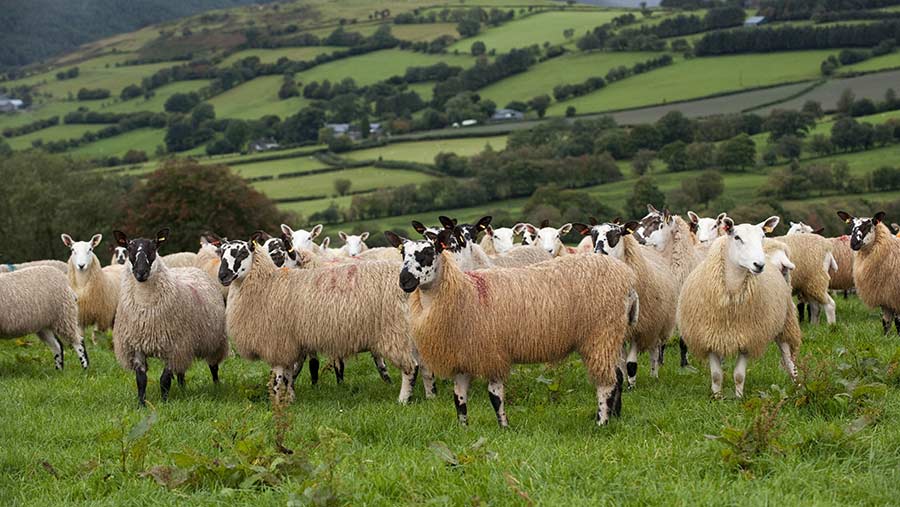Welsh hill farm meat among most sustainable, report finds
 © FLPA/Shutterstock
© FLPA/Shutterstock Welsh hill farms are among the most sustainable meat-production systems in the world, a report has concluded.
The research by Bangor University used the latest techniques to accurately measure greenhouse gas emissions and carbon capture on 20 beef and sheep farms across Wales.
Hill farms, in particular, were found to have a far lower net emissions figure than the stated global average of 37kg of carbon dioxide emissions per kilogramme (CO2/kg).
See also: Appetite to support British food is growing, research finds
By comparison, Welsh beef cattle produced a net figure of just 11-16kg CO2/kg. Lamb production was even lower at 10-13kg CO2/kg.
The university’s senior lecturer in environmental management, Prysor Williams, said the results shows Welsh lamb and beef production is potentially the most sustainable farming system globally.
The non-intensive systems on Welsh hill farms, coupled with high rainfall and good grass growth, mean far less concentrate is bought in, Dr Williams found.
Inputs are also reduced on farms, which optimises health, welfare and breeding capacity.
And the report suggested carbon capture could be promoted further through land management techniques that champion better management of soil, woodland and hedgerows.
Report backing
The study was funded by Hybu Cig Cymru (Meat Promotion Wales).
Chief executive Gwyn Howells said the research had been commissioned due to recent debates about agriculture’s environmental effect, which had centred on a misleading global picture.
Mr Howells added that the report provides information that should help to allay concerns of environmentally conscious consumers. “The climate crisis we face is urgent in nature and global in scale.
“The answer is not to stop eating red meat, but to choose sustainably produced lamb and beef.”
However, Mr Howells said the industry must accept and acknowledge its ongoing role in achieving a reduction in emissions in line with the Paris Agreement by 2050.
He said Welsh farmers could sell their meat with confidence as a sustainable product, but also had to hone production methods to minimise and mitigate environmental effects in the future.
